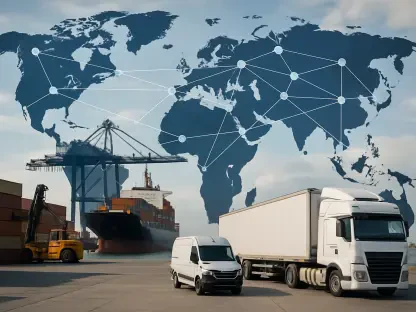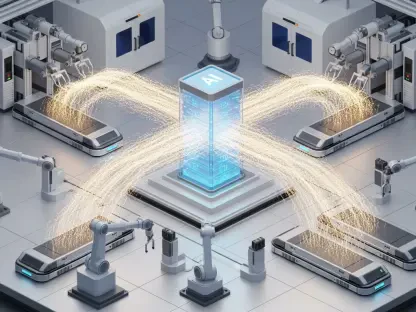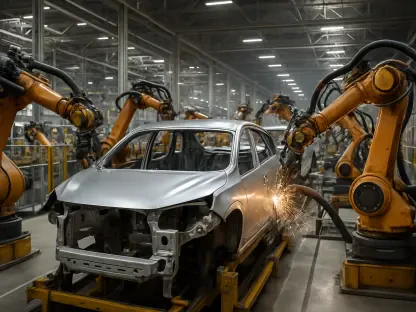In an era where artificial intelligence shapes nearly every aspect of daily life, a profound concern emerges about who benefits and who gets left behind, particularly as global inequality widens under the weight of technological advancement. At a recent gathering in Pocheon-si, Korea, hosted by the World Council of Churches alongside ecumenical partners, faith leaders, theologians, and academics convened to confront this pressing issue. Held at the Kwanglim Seminar House from August 27-29, the New International Financial and Economic Architecture (NIFEA) Consultation focused on the role of faith communities in addressing disparities driven by the Fourth Industrial Revolution. The event underscored a critical intersection of spirituality and technology, urging a reevaluation of how digital tools like AI impact human dignity. Discussions revealed a stark reality: without intentional action, the rapid pace of innovation risks deepening divides, exploiting vulnerable populations, and harming the environment. This pivotal meeting set the stage for exploring faith-rooted solutions to ensure technology serves justice rather than division.
Confronting the Digital Divide and Ethical Challenges
The consultation illuminated the stark digital divide as a barrier to human flourishing, with faith leaders emphasizing its moral implications. A staggering 51% of rural populations lack access to high-speed internet, while 2.6 billion people, predominantly in sub-Saharan Africa, remain entirely offline. Speakers argued that such exclusion contradicts fundamental principles of stewardship and equity central to many faith traditions. Beyond access, the ethical dilemmas of AI were a focal point, particularly the exploitation of vulnerable groups. The alarming rise of AI-enhanced online sexual abuse targeting children was described as a form of globalized and digitalized victimization that demands urgent attention. Faith communities were called to not only condemn these injustices but to actively advocate for protective measures and policies that prioritize human dignity over technological convenience or profit.
Another critical dimension explored was the broader societal impact of digital exclusion and misuse. The rapid integration of AI into everyday systems often outpaces the ability of many to adapt, creating what some termed “AI illiteracy.” This gap risks fueling mass unemployment, societal unrest, and even polarization as communities struggle to keep up with technological shifts. The consensus was clear: faith leaders must bridge this divide by fostering education and awareness while pushing for inclusive frameworks that prevent technology from becoming a tool of oppression. The moral imperative to act was framed as a prophetic duty, urging churches to move beyond passive concern and into tangible engagement with policymakers and tech developers to address these systemic inequities.
Environmental and Social Risks of AI Under Scrutiny
A significant concern raised during the consultation was the environmental toll of AI and related technologies, challenging the narrative that digital solutions inherently benefit the planet. Experts pointed out that the immense energy consumption and resource extraction required to power AI systems often cause more harm than good, contributing to ecological degradation. This perspective urged faith communities to critically assess technology’s environmental footprint and advocate for sustainable practices in tech development. The intersection of faith and ecology was presented as a vital area for action, with calls to prioritize creation care alongside human welfare in the face of unchecked technological expansion.
Equally pressing were the social risks tied to AI’s rapid advancement, particularly the potential for widespread job displacement and societal discord. Discussions highlighted how automation could exacerbate unemployment, especially in regions unprepared for such transitions, potentially leading to resentment and conflict. Faith leaders were encouraged to address these looming challenges by promoting dialogue and education on AI’s societal impacts. The notion of “AI illiteracy” was revisited as a catalyst for hatred and division, with warnings that without proactive measures, technology could deepen existing fractures. The role of churches in fostering resilience and advocating for just labor policies was seen as essential to mitigating these risks and ensuring technology aligns with values of fairness and community.
Envisioning a Spiritual Revolution for Technological Justice
Amid the sobering challenges, the consultation offered a hopeful vision through the concept of a “Fifth Revolution”—a spiritual awakening to complement the Fourth Industrial Revolution. This idea proposed a renewed connection among humanity, creation, and the divine as a counterbalance to technology’s dehumanizing tendencies. Speakers advocated for faith communities to lead this transformation by embedding ethical and spiritual values into technological progress. The emphasis was on ensuring that AI and digital tools serve humanity rather than perpetuate inequality, with a unified call for active involvement in shaping policies that reflect justice and compassion over mere efficiency or economic gain.
The diverse perspectives shared during the event, from environmental critiques to social justice concerns, converged on the need for faith-rooted action. The collaborative nature of the consultation, involving global partners like the World Communion of Reformed Churches and the Lutheran World Federation, underscored the urgency of a collective response. Participants agreed that without deliberate intervention, AI risks widening global disparities and harming the defenseless. The discussions ultimately framed faith communities as prophetic voices capable of influencing policy and advocating for a world where technology upholds human dignity. Looking back, the event served as a powerful reminder of the church’s potential to guide innovation toward equity.
Moving Forward with Faith-Driven Advocacy
Reflecting on the NIFEA Consultation, it became evident that the intersection of faith and technology demanded more than discussion—it required action. Faith leaders left with a renewed commitment to address the digital divide, child exploitation, environmental harm, and social unrest through advocacy and policy engagement. The event highlighted a path forward where churches could collaborate with tech industries and governments to develop frameworks prioritizing ethical standards. By championing education on AI and digital literacy, faith communities aimed to empower the marginalized and prevent further inequality. The call for a spiritual revolution lingered as an inspiring challenge, urging sustained efforts to ensure technology became a force for justice, not division, in the years ahead.









